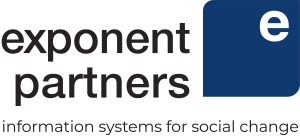Tracking COVID-19 Vaccination Status with Salesforce
Vaccination rates around the world are rising, and most of us are starting to feel a glimmer of hope about returning to life as we knew it before the Coronavirus pandemic. Or at least something closer to normal. The decision whether or not to get vaccinated is a personal one and can be influenced by religious, cultural, political, and personal health factors as well as logistics like availability of vaccines and access to distribution sites. As organizations begin to think about returning to working in the office, and seeing clients face-to-face, the question has arisen for many of our customers that are nonprofit service providers and human service agencies: do we need to collect and store vaccination status information? And if so, what’s the best and safest way to do it?
Why Collect Vaccination Information?
There are several reasons why an organization may need to collect data on employee or program participant COVID-19 vaccination status. The first being if your organization defines new operating policies requiring that anyone participating in an in-person interaction scenario must be vaccinated. This could include office visits as well as home or site visits. In this case, you’d need to know which of your participants are able to receive in-person services and which need to be accommodated with continued virtual or socially distanced services. Since your organization is defining this policy, it is important to have a clear process for how to collect, verify and track the vaccination data.
A second situation would be if service providers to which you regularly refer your clients have policies around vaccination status. Some examples may include shelters or training programs that require clients to have been vaccinated in order to participate. While you don’t need the vaccination data yourself, it would be more useful for your referral process to know whether or not a client is eligible to receive services at partner agencies.
We work with many workforce development organizations and they do an excellent job of cultivating relationships with employers for placing their clients. These employers may institute vaccination policies. Similar to the example above with service providers, you may need to know whether or not your client would be eligible to be placed with an employer that requires vaccination.
Data Collection Options
If you’re familiar with Salesforce, you’re probably aware that there are many, many different ways to track any type of data. How you plan on using vaccination status is going to be the biggest driver on how you enter that data in Salesforce. Here are three possible ways you might want to approach it.
- Essential: you just need to know if someone is vaccinated. You don’t need dates, manufacturer, or number of doses. In this case, a checkbox on the Contact record would be the bare minimum needed.
- Moderate: you are able to collect more information but still want to keep it simple. You can create a few fields on the Contact record (add to the page layout and record types relevant for your client contacts). You may include fields like Manufacturer, Dose 1 Date, Dose 2 Date, and a formula field that determines if they’re fully vaccinated based on the manufacturer value and the relevant final dose date being populated.
- Robust: you need to collect all the vaccination information, and be prepared for future changes. We don’t know what the future holds: will more manufacturers get approved vaccines to market, will boosters or additional doses become required, do you need additional security around the vaccination data beyond field level security? Building a custom object to track vaccination data will give you the most robust options for both today and the future. You can then keep the details of the vaccination better protected, and just surface the vaccination status on the Contact record.
Exemptions and Data Security
Some states have existing exemptions regarding vaccination requirements (such as for schools), so you should have a plan for how to handle clients that are claiming an exemption from getting vaccinated. Also be certain to evaluate what consent or authorization to share data forms should be collected. Whichever way you decide to capture vaccination data, keep security and data access concerns front of mind. At a minimum, field level security for any of the three options above will allow you granular control over which users can see, edit or report on vaccination status and consent data. Combined with sharing settings, sharing rules or permission sets, you can ensure that only the appropriate users can access this sensitive information.
What Approach is Right for Your Organization? Take Our Survey
We’d love to hear if you’re considering (or already) collecting COVID-19 vaccination data. We have a very short survey where you can provide your feedback on how your organization is evaluating options for this data. This anonymous survey should take less than 5 minutes to complete. All individual answers will be kept confidential as we will only share the aggregate results. Your responses are important to us. We appreciate your thought partnership and continued dedication to positive social change during this pandemic and beyond. Thank you!


